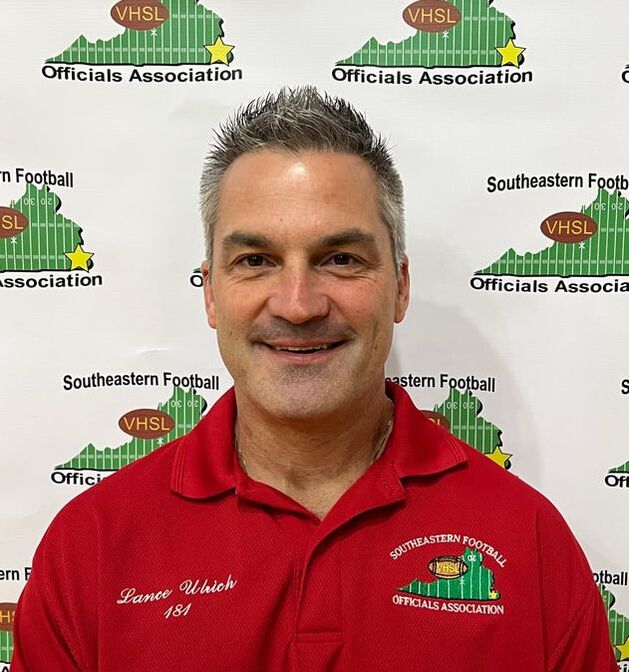 This month I wanted to address something we, as officials, sooner or later start to think about. Upward mobility. Now, I know what you’re thinking. Generally in the officiating world when the notion of upward mobility comes up it’s easy to assume that we’re talking about the leap from high school to college. But that’s not what I’m referring to. This time I’m referring to the movement from working at the “learning levels” to becoming a regular “Friday Night” crew official. When I began officiating in 2002 I was very naïve. I felt like, I know everything there is to know about football. I played it in high school; I watch it religiously on Saturday and Sunday. How hard can it be to officiate it? I honestly thought I would just go out there and whatever association I joined up with would start me out working Friday night high school games. Of course the association I joined quickly cured me of that notion. In addition to making me painfully aware that I had no idea about the actual rules of the game, it was also brought to my attention that I was clueless as to what to actually do on the field. Mechanics, application of movement, and where and what I should be looking at. Raise your hand if you have ever looked at the ball while it was in the air during a pass play instead of the two or three players involved in the pass play. This was brought to my attention immediately upon trying to officiate my first scrimmage. It was a complete revelation and made me very aware that I had a lot to learn. I’m sure this is not a surprise to those of you who have been around awhile. Or even to those of you who have been around for 2-3 years. We just had no idea what aspect of the game we were involving ourselves in. For me, it was very sobering and very exciting. Sobering because as I said, I really thought I knew everything I needed to know. Exciting because I realized I was taking on something new and extremely challenging. This is another step in learning whether or not officiating is for you. If you are like me, and thought you knew everything there is to know, you have some choices to make. First, it only takes 2-3 weeks for you to realize you are not going to be officiating Friday night games any time soon. Are you willing to work the way the other Friday night officials do to achieve that status? Second, you should be aware you are going to have to dedicate a lot more time then you originally thought. Last month’s blog suggested how good of an idea working 3-4 youth football games every Saturday is. This is very important in honing your skills. Can you give up a couple Saturdays during the season to learn on the job like that? Study groups, independent study, tests, and middle school and JV games. All of these things take up a great deal of your time. But if you’re serious about being a regular Friday night official, these are challenges you accept head on. Third, after you finally have a year or two of experience under your belt, can you consistently demonstrate the application of what you have learned?
Now don’t get me wrong, after 15 years, I’m still learning and continue to grow as an official. What I’m talking about is: you’ve learned a lot in the last couple of years! Do you apply it appropriately and at the right time? It takes an honest look in the mirror to answer these questions truthfully. But it’s very important that you do because not answering them truthfully could be the reason you’re not on the field every Friday night. The best officials are the ones who look at these challenges and accept them for what they are, a challenge. Instead of having some sense of entitlement to being promoted to a Friday night crew because you’ve been around for a couple of years, ask yourself, am I truly putting in the right amount of effort? Am I doing what it takes for Varsity football consideration? Finally, and this is, in my opinion, the most important item. What kind of person are you? When you finally do get that Friday night game, how well did you get along with your crew? Did you listen to the advice of the veteran officials? Or did you blow off any advice or information they had for you? Were you prepared for the portion of the pregame the referee assigned to you? Was your uniform neat and clean? How was your communication? And not just with your crew, with coaches and players too. Do you talk down to them like you should never be questioned? This is just a snapshot of the things that go into determining whether or not you are ready for prime time. These are questions you should be asking yourself. Especially, if you have 5-6 years of officiating on your resume and still do not seem to have a weekly Friday night assignment. Also, this is not just a message for the younger/newer officials. Those of you who take for granted that you will receive regular Friday night assignments should adhere to the message above. There are a lot of “younger” eyes that look to you for guidance and example. It’s much easier to accept advice from someone who demonstrates the characteristics of a quality official than from someone who everyone can tell is just mailing it in. Here is the bottom line... If you are serious about officiating football and you are not consistently being assigned as a high school varsity official, whether you’re in your first year or your seventh, then that should be your goal. Think about some of the things we're talking about. Work on the aspect of the game that can set you apart. And most importantly, control the things that you can control. Demonstrate good rules knowledge, use the mechanics that have been assigned for us to use, and by all means, be the official that other officials really want to work with. Remember, feedback is most welcome. I hope you enjoyed this month’s blog and have fun at your next game. Lance
1 Comment
Wagner
4/27/2017 07:54:47 am
Great article and right on target!
Reply
Leave a Reply. |
Blog AuthorLance Ulrich has been a football official since 2002, and a member of SEFOA since 2009. Archives
March 2023
Categories |

 RSS Feed
RSS Feed